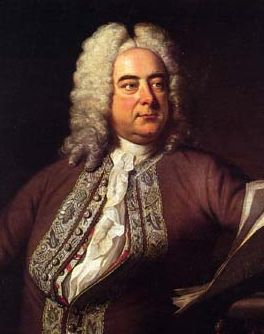The Well-Tempered Ear
Classical music: The Ear generally doesn’t like countertenors. Do you? Is it sexist or artistically wrong to prefer female singers to countertenors and to boy sopranos, especially in Bach cantatas. What do you say about the choices?
12 Comments
By Jacob Stockinger
No doubt about it: Countertenors are once again cool.
Finally, after centuries of being ignored, slighted and downright ridiculed, countertenors are back in. They are mainstream these days and their numbers are increasing, as are their popularity and their quality.
When you plug the word “countertenor” into the YouTube search engine, you get more than 106,000 results. (At bottom is YouTube video of French countertenor Philippe Jarousskey singing a Vivaldi aria that has almost 2.5 million hits.)
On this past Thursday, NPR’s “Morning Edition” featured a terrific piece about countertenors with Miles Hoffman, the music commentator who is also a professional violist.
The report and commentary concerned the upcoming world premiere this weekend of the opera Theodore Morrison’s “Oscar,” based on the life and trial of Oscar Wilde, at the open air Santa Fe Opera (below).
The main point about the singing is that the lead role is played by the universally acclaimed countertenor David Daniels, for whom the opera was specifically composed. And Daniels (below, on the right, as Oscar Wilde in a photo by Ken Howard for the Santa Fe Opera) has a voice that was described as “high” and heavenly.”
Here is a link to the story with audio clips of other performances by Daniels including music by Handel and Franz Schubert:
Now, I have heard a few countertenors, in live performances and on recordings, and there are times when I liked them a lot. I certainly was impressed by them and glad that they now have place in the mainstream of vocal music and opera.
The resurgence of countertenors over the past 15 or so year was inevitable, I suppose, given the revival of Baroque opera and especially the operas of George Frideric Handel (below), who usually wrote his high-pitched hero roles for countertenors.
In fact, here is a link to an earlier piece that NPR “Deceptive Cadence” blogger Tom Huizenga wrote about the Handel recording by another prominent countertenor Bejun Mehta (below):
But I found myself disagreeing with Miles Hoffman (below) and others who think that countertenors somehow bring an added richness to the singing.
My ears tell me just the opposite. So now is a good time to files what appears to be a minority report.
I generally find the countertenor tone uncomfortable. In general, I find adult women’s voices or ordinary male tenors more convincing and expressive, less artificial and more normal to my standards.
I feel the same way about using boy sopranos in choruses of J.S. Bach’s cantatas. There are times when I love the sound of boychoirs and boy sopranos.
But even in period performances of early music – by far, my preference — Bach’s cantatas seem much more convincing and beautiful to me with a soloists and choruses of adult men and adult women.
Of course, we all live in history.
But the fact of the matter is that women were not used for singing not because high male voices were superior but because earlier epochs were heavily sexist and discriminated against women.
That is also, I believe, why the roles of young women in Shakespeare’s plays were usually played by young men. Women were simply not allowed full participation in the performing arts.
And although we may want to reconstruct such practices out a curiosity for historically informed performance and to hear how a certain piece of music originally sounded, I say that earlier periods – not ours – were the more deprived epochs.
Anyway, I look forward to hearing from readers and sophisticated fans of vocal music about whether my objections are misplaced and inappropriate, or whether they agree with me. Not that I expect the trend toward using countertenors will abate. I am sure it will only grow.
In the end, I suspect, it was comes down to taste and personal preference – as is so often the case, given the inevitable subjectivity of art.
But let me know what you think.
The Ear wants to hear.
Tags: Baroque music, Bejun Mehta, cantatas, countertenor, countner-tenor, Daniels, David Daniels, Franz Schubert, George Frideric Handel, Handel, J.S. Bach, Jacob Stockinger, NPR, opera, Oscar Wilde, Philippe Jarousskey, Santa Fe Opera, Singing, Theodore Morrison, Vivaldi, YouTube
- May 2024
- April 2024
- March 2024
- February 2024
- January 2024
- December 2023
- November 2023
- October 2023
- September 2023
- August 2023
- July 2023
- June 2023
- May 2023
- April 2023
- March 2023
- February 2023
- January 2023
- December 2022
- October 2022
- September 2022
- June 2022
- May 2022
- April 2022
- March 2022
- July 2021
- June 2021
- May 2021
- April 2021
- March 2021
- February 2021
- January 2021
- December 2020
- November 2020
- October 2020
- September 2020
- August 2020
- July 2020
- June 2020
- May 2020
- April 2020
- March 2020
- February 2020
- January 2020
- December 2019
- November 2019
- October 2019
- September 2019
- August 2019
- July 2019
- June 2019
- May 2019
- April 2019
- March 2019
- February 2019
- January 2019
- December 2018
- November 2018
- October 2018
- September 2018
- August 2018
- July 2018
- June 2018
- May 2018
- April 2018
- March 2018
- February 2018
- January 2018
- December 2017
- November 2017
- October 2017
- September 2017
- August 2017
- July 2017
- June 2017
- May 2017
- April 2017
- March 2017
- February 2017
- January 2017
- December 2016
- November 2016
- October 2016
- September 2016
- August 2016
- July 2016
- June 2016
- May 2016
- April 2016
- March 2016
- February 2016
- January 2016
- December 2015
- November 2015
- October 2015
- September 2015
- August 2015
- July 2015
- June 2015
- May 2015
- April 2015
- March 2015
- February 2015
- January 2015
- December 2014
- November 2014
- October 2014
- September 2014
- August 2014
- July 2014
- June 2014
- May 2014
- April 2014
- March 2014
- February 2014
- January 2014
- December 2013
- November 2013
- October 2013
- September 2013
- August 2013
- July 2013
- June 2013
- May 2013
- April 2013
- March 2013
- February 2013
- January 2013
- December 2012
- November 2012
- October 2012
- September 2012
- August 2012
- July 2012
- June 2012
- May 2012
- April 2012
- March 2012
- February 2012
- January 2012
- December 2011
- November 2011
- October 2011
- September 2011
- August 2011
- July 2011
- June 2011
- May 2011
- April 2011
- March 2011
- February 2011
- January 2011
- December 2010
- November 2010
- October 2010
- September 2010
- August 2010
- July 2010
- June 2010
- May 2010
- April 2010
- March 2010
- February 2010
- January 2010
- December 2009
- November 2009
- October 2009
- September 2009
- August 2009
Archives
- 2,491,483 hits
Blog Stats
Recent Comments
| Brian Jefferies on Classical music: A major reass… | |
| welltemperedear on What made Beethoven sick and… | |
| rlhess5d5b7e5dff on What made Beethoven sick and… | |
| welltemperedear on Beethoven’s Ninth turns 200… | |
| Robert Graebner on Beethoven’s Ninth turns 200… |
Tags
#BlogPost #BlogPosting #ChamberMusic #FacebookPost #FacebookPosting #MeadWitterSchoolofMusic #TheEar #UniversityofWisconsin-Madison #YouTubevideo Arts audience Bach Baroque Beethoven blog Cello Chamber music choral music Classical music Compact Disc composer Concert concerto conductor Early music Facebook forward Franz Schubert George Frideric Handel Jacob Stockinger Johannes Brahms Johann Sebastian Bach John DeMain like link Ludwig van Beethoven Madison Madison Opera Madison Symphony Orchestra Mead Witter School of Music Mozart Music New Music New York City NPR opera Orchestra Overture Center performer Pianist Piano post posting program share singer Sonata song soprano String quartet Student symphony tag The Ear United States University of Wisconsin-Madison School of Music University of Wisconsin–Madison Viola Violin vocal music Wisconsin Wisconsin Chamber Orchestra wisconsin public radio Wolfgang Amadeus Mozart YouTube



